Privacy Laws In The US
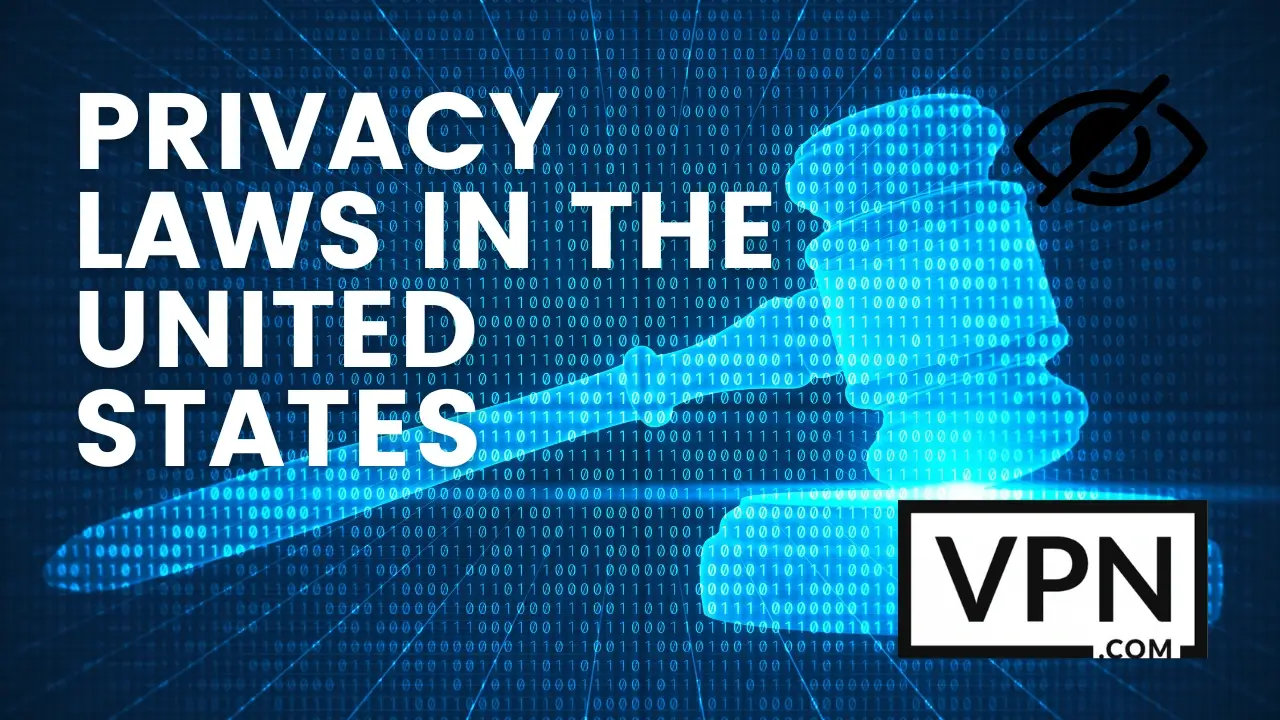
Individuals have the inherent right to regulate who gets access to their personal information, such as data and images, as well as how that information is utilized. This is termed a privacy right. In the United States, there are laws that safeguard people’s right to privacy and ensure that personal data cannot be disclosed without their knowledge or consent.
These privacy laws in the US were enacted so that people might exercise their rights. In this age of digital information, where massive volumes of personal data can freely travel across borders with little oversight or accountability, privacy rules are more critical than they have ever been.
People are given the ability to access and use information in a safe and secure manner, with the assurance that it will not be misused against them or shared without their permission thanks to the privacy protections that are maintained by such regulations.
It is necessary for there to be continued existence of privacy regulations of high quality in the United States, as this will ensure that this right will continue to be preserved.
Key privacy laws In The US
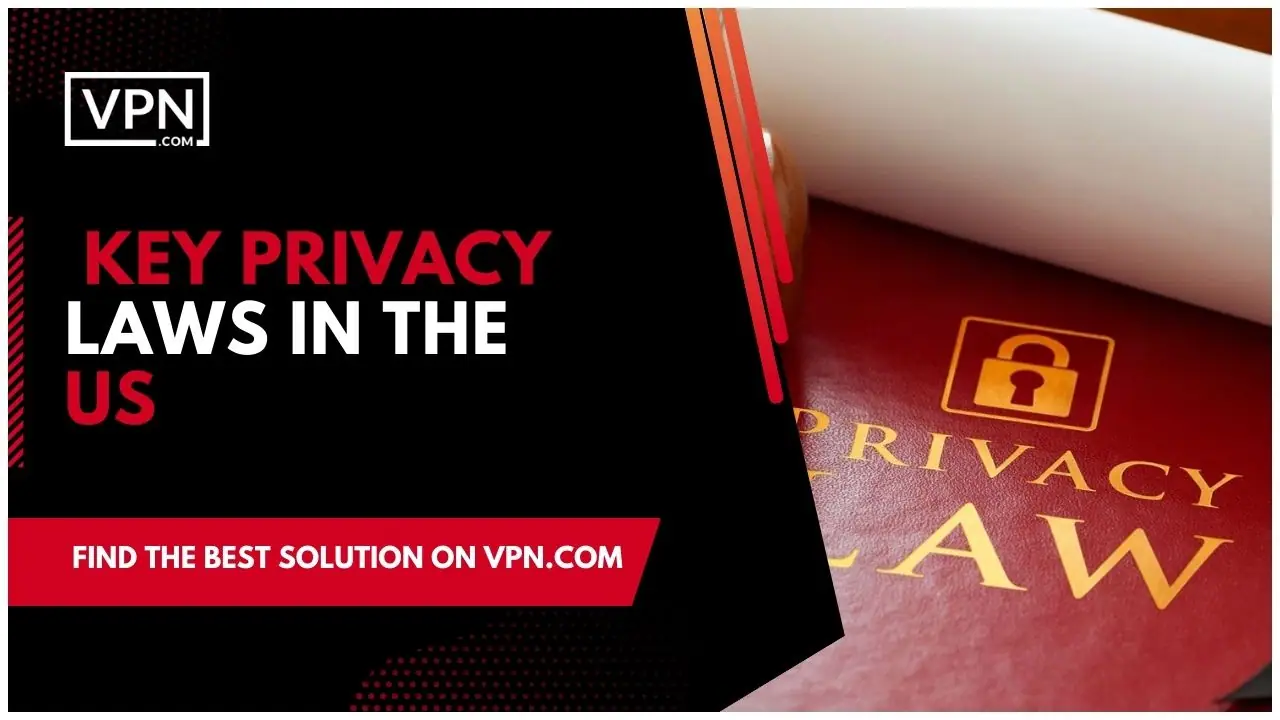
Privacy and data protection have become particularly important issues in the digital age. HIPAA, COPPA, and GDPR are some of the major privacy laws in the US that are put in place to protect the privacy rights of individuals and companies in the US and globally.
HIPAA regulates how health information is handled by organizations providing medical services or insurance, while COPPA ensures that online service providers properly inform parents about their children’s personal data handling practices.
The European Union created GDPR which sets out a series of principles for individuals around Europe regarding their rights with respect to their personal data as well as requirements from companies in terms of protecting said data.
Compliance with these laws is essential for companies but also for all individuals since it ensures vital protections for customers’ personal information, including name, address, credit card details, etc. It is extremely important to keep up with recent developments on this front in order to ensure smooth operations and protect our privacy laws in the US at all times.

Get Started w/ NordVPN Today
- Top-rated VPN for OS unknown
- Ultra-fast speed in US in 2024
- Save 69% off with VPN.com Discount
- Plans starting at $2.99/month
GUARANTEE
Health Insurance Portability and Accountability Act (HIPAA)
The Health Insurance Portability and Accountability Act (HIPAA) is a law that establishes guidelines for how medical professionals and insurance companies should handle patients’ personal health information. HIPAA has specific rules about how to protect the privacy of patients and keep medical information from getting into the wrong hands.
Notification of healthcare data breaches must be made promptly per HIPAA regulations. For the healthcare industry as a whole, HIPAA is essential for the protection of patients personal information and confidentiality. It’s one of the most significant pieces of healthcare legislation passed in recent memory because of the strong measures it puts in place to protect patients privacy while engaging with health insurers and other healthcare service providers.
The significance of HIPAA cannot be emphasized, as it gives patients the peace of mind that comes from knowing their health records will be kept private regardless of which provider they choose or which insurance plan they go for.
Children’s Online Privacy Protection Act (COPPA)
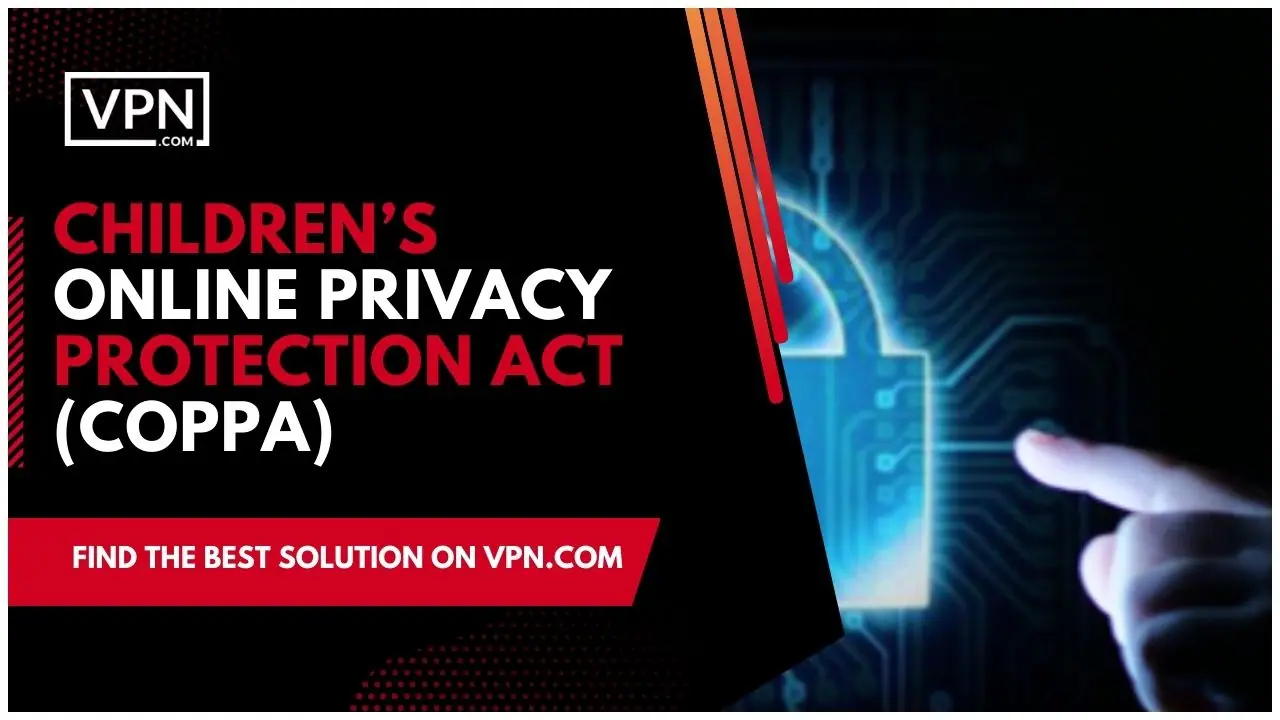

Get Started w/ NordVPN Today
- Top-rated VPN for OS unknown
- Ultra-fast speed in US in 2024
- Save 69% off with VPN.com Discount
- Plans starting at $2.99/month
GUARANTEE
COPPA protects children’s online privacy. The COPPA law tells services and websites that collect personal information from children under 13 what they need to do. This includes getting parental approval when a service wants to collect information from a child and barring websites from directing advertisements explicitly at children under 13 years of age.
The Children’s Online Privacy Protection Act (COPPA) offers safer and more private places for children to use the internet without exposing their personal information.
The Children’s Online Privacy Protection Act (COPPA) is an ever-developing legal statute that enables constant adaptation to evolving internet data gathering dangers. It continues to be one of the most significant instruments that can be used to protect children in this age of digital technology.
General Data Protection Regulation (GDPR)
The General Data Protection Regulation (GDPR) was enacted on a global scale to safeguard the private information of EU residents. As it mandates that businesses properly handle acquired data and obtain valid consumer consent before using someone’s personal data for any purpose, it has had a significant impact on how businesses process and store information online and offer services.
Furthermore, GDPR empowers individuals to restrict the dissemination of their personal data, giving them the assurance that their data will be used only with their consent.
GDPR has played a crucial role in enhancing global privacy protocols, and the legal ramifications of not following GDPR regulations are strong enough to guarantee that businesses comply with GDPR obligations.
Electronic Communications Privacy Act (ECPA)
ECPA, or the Electronic Communications Privacy Act, is a United States federal law that has greatly impacted electronic communication privacy since its enactment in 1986. ECPA allows for greater protections for user-generated content stored by third-party services online and better manages law enforcement access to such information. Any requests made by law enforcement to gain access to private communications must be approved by a judge and must adhere to EPA’s regulations.
ECPA also requires court-approved warrants before the government can compel online services to turn over customer content stored with those providers.
ECPA has become an increasingly important part of our privacy as our lives shift further and further into digital spaces; without ECPA, our online activity and information would be far less secure and protected. Thus, ECPA is vital in guaranteeing the safety of online users personal information, content,and communications.
Fair Credit Reporting Act (FCRA)
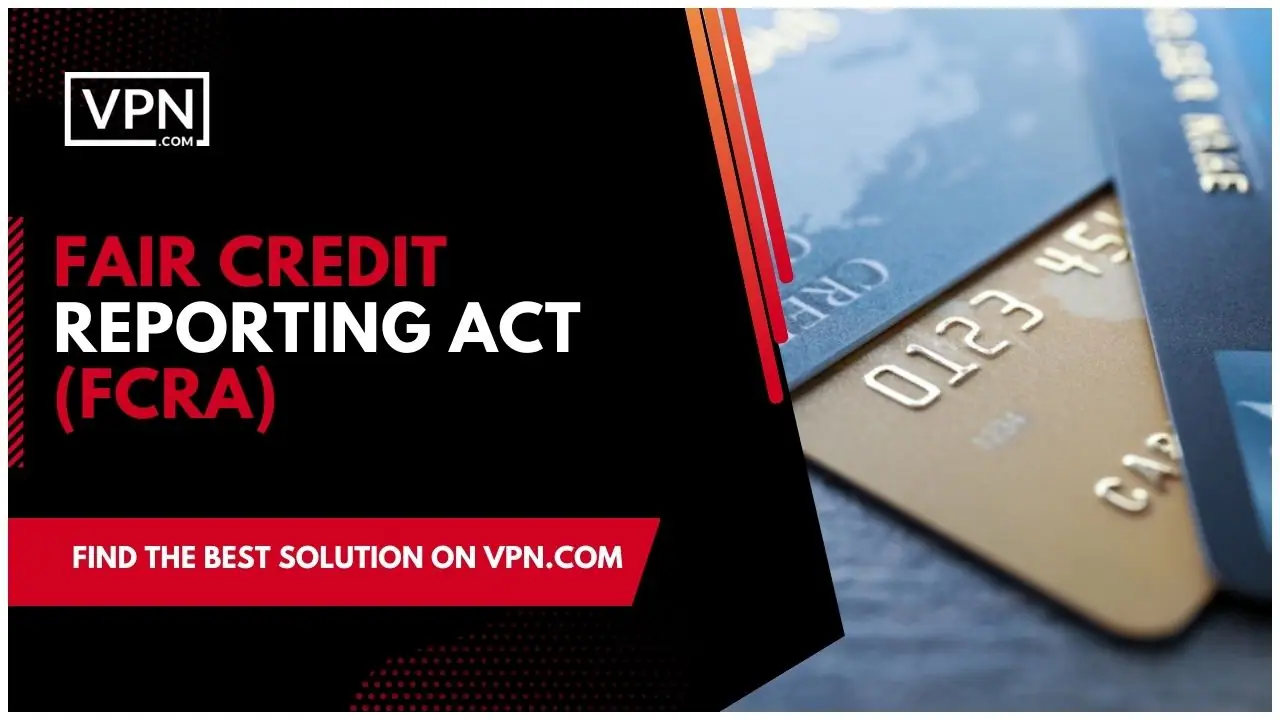
The FCRA safeguards consumer credit information privacy. FCRA sets forth clear requirements and restrictions on how credit reporting agencies and employers use consumer credit information. By limiting the ways that companies can store, access, share and even destroy consumer information collected online, FCRA helps to protect individuals from unauthorized use or theft of private data.
FCRA also applies regulations to services such as background checks and pre-screened credit offers which give consumers more control over the information they provide to potential lenders or employers.
FCRA ensures clarity by providing consumers with written disclosure of their rights when seeking certain types of services, making sure they are aware of how their private data will be used. FCRA is a crucial safeguard that drives consumer privacy standards in our connected economy; without its protections, we may not have the same level of confidence when it comes to online services collecting our financial and personal information.

Get Started w/ NordVPN Today
- Top-rated VPN for OS unknown
- Ultra-fast speed in US in 2024
- Save 69% off with VPN.com Discount
- Plans starting at $2.99/month
GUARANTEE
Changes In Technology Due To Privacy Laws
Technology companies today must navigate a complex web of laws and regulations when it comes to privacy. Data collection and storage practices must adhere to increasingly stringent privacy laws in the US, or companies face the risk of lost sales or costly fines. Organizations are challenged not only to remain compliant with existing laws, but also to continuously stay ahead of any changes in law.
Striking the right balance between innovation and data privacy protections is becoming an ever-important task for technology firms navigating this landscape. Companies must find a way to provide innovative solutions while still demonstrating commitment to upholding consumer rights and protecting consumer data.
California Online Privacy Protection Act (CalOPPA)
California’s Online Privacy Protection Act (CalOPPA) is an important act that strives to help protect user privacy. It requires businesses and other organizations running online services in California to provide specific, clear disclosures about the personally identifiable information they collect from California users.
This creates transparency for users, so they can make informed decisions about the data they are providing and how it is going to be used.
Failure to comply with CalOPPA can cause significant financial penalties, as well as tarnish a business’s reputation if word gets out of their noncompliance with the Act. California users who are aware of the protection offered by CalOPPA will be more confident that their information is safe and secure.
Effects Of Privacy Violations On Individuals And Society
Privacy violations are an increasingly prevalent issue that can have a huge impact on individuals and society. The rise of technology has made it easier for organizations or individuals to access or mishandle personal data without permission, resulting in serious privacy issues and invasions of privacy.
As such, privacy laws in the US are required to ensure that people’s private information is properly protected, with enforcement measures in place and strictly enforced to combat the ongoing issue of privacy violations.
Privacy must be respected but also balanced with considerations for public safety. Developing strong protection measures regarding personal information can help mitigate sensitive issues and promote security while not stifling continued progress.
Best Practices For Protecting Privacy
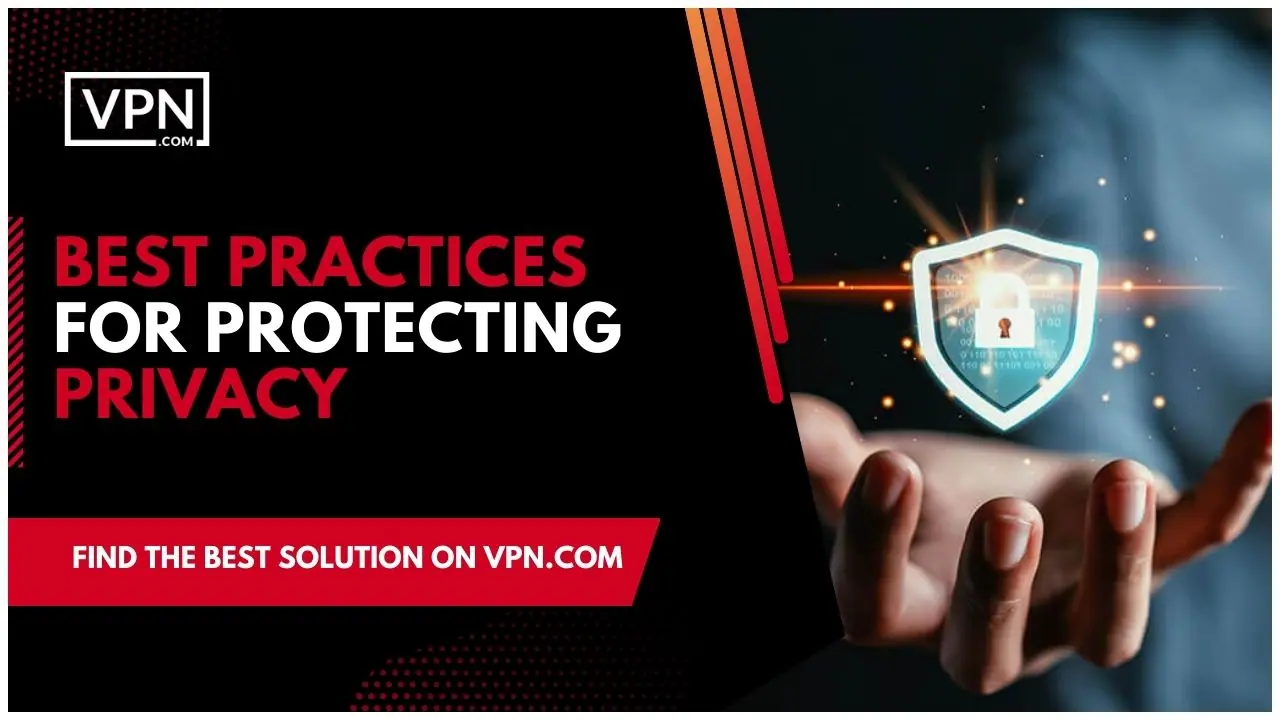

Get Started w/ NordVPN Today
- Top-rated VPN for OS unknown
- Ultra-fast speed in US in 2024
- Save 69% off with VPN.com Discount
- Plans starting at $2.99/month
GUARANTEE
Strong passwords and two factor authentication can go a long way toward protecting individuals online, but it is becoming increasingly essential to educate people on the importance of digital and physical security. There has been a rise in attacks on personal privacy including phishing emails, hackers targeting vulnerable devices, and viruses that steal information from unencrypted systems.
Companies must also mandate privacy by design principles to ensure data safety; procedures should include encryption methods and the implementation of virtual private networks whenever possible. Together, these measures work to maximize security for all users, ensuring the environment remains free from online criminals.
Strong Passwords And Two-Factor Authentication
Two-factor authentication secures logins. It provides an extra layer of security by requiring the user to verify their identity through two methods, usually with an email verification step or through a code texted to their mobile device.
Two-factor authentication can help keep individuals safe from data breaches, as it helps protect them from cyber threats such as hackers stealing passwords, account numbers and other personal information. Implementing strong passwords is just as important in protecting personal accounts from these types of threats.
To create a strong password, organizations should regularly apply password complexity rules such as using a mix of uppercase letters, lowercase letters, symbols and numbers, and making sure the password length is long enough to make it difficult for intruders to guess.
Additionally, privacy laws in the US set out specific guidance surrounding the use of passwords that must be upheld by organizations in order to ensure they are compliant with regulations. Two-factor authentication, along with strong passwords and constant monitoring, can help firms avoid cyberattacks.
Adjusting Privacy Settings
Privacy is an important issue as more activities move online, and understanding the best practices for adjusting privacy settings on your devices and social media platforms can keep your personal information safe.
Privacy laws in the US provide a basic framework for companies helping ensure that users are aware of the data being collected about them, how it’s being used, and the options for limiting the amount of personal information to be shared. Understanding the key points for protecting personal information online will go a long way in ensuring that you remain secure while using online services.
Adjusting privacy settings is just one aspect of online security; you should also practice good digital hygiene when using different platforms and devices. Taking time to review each platform’s terms of service and then customizing your experience with regards to what data you allow companies to access will further protect your personal data from leakage.
Encrypted Communication
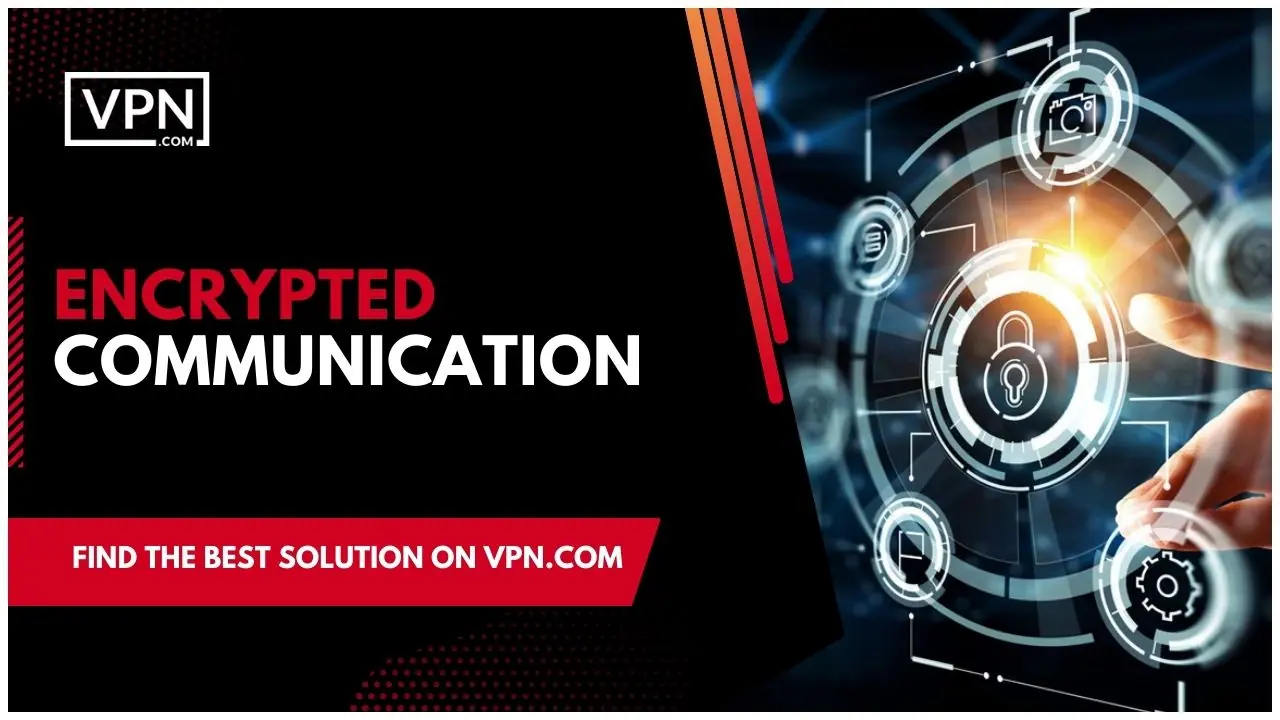
Encrypted communication is an important tool for making sure that digital and internet communication is safe and private. Privacy laws in the US try to stop people from misusing personal information shared through non-encrypted communication tools, but they can’t protect information once it has been sent.
Data encryption scrambles our information by mixing up the bytes, which makes it nearly impossible for anyone to get to it without the right decryption key. Popular tools like Signal and ProtonMail offer end-to-end encryption and are easy to use when sending messages or emails.
These encrypted points are easy to find for users who want more personal privacy and a more secure way to exchange data overall. Even though many people may not think about using these technologies in their daily lives, encrypting your communications can add an extra layer of security that could be worth its weight in gold if a breach or leak ever happened.
Avoiding Phishing Scams
Phishing scams are an insidious threat to privacy and security, and as technology advances, it becomes more difficult to recognize these scams. Everyday internet users are targeted by malicious actors looking for access to personal information.
As such, it is important to practice vigilant online security, including setting up various privacy settings on social media accounts and searching the internet for laws and practices that protect personal information from prying eyes.
Furthermore, be careful when providing information to any sources, even if they claim to be legitimate; always research a company or individual through reliable sources before giving out sensitive data.
Various search engines provide helpful results concerning phishing scams that can help prevent one from becoming a victim of this type of scam. By following these simple tips and familiarizing yourself with these practices you can drastically reduce your risk of having your personal information compromised by phishing scams.
Reading Privacy Policies And Using A VPN
Privacy is of utmost importance when browsing the internet, and it’s essential to understand how your personal information is being collected and used. Reading privacy policies can help you understand the permissions you are granting websites in terms of collecting your data, as well as laws and practices governing data usage by search engines and other companies.
Consider using a virtual private network (VPN) to protect yourself against security threats while online, as this can improve your overall privacy settings. When selecting a VPN provider, make sure to carefully read their terms and reviews, which will help you decide if their practices adhere to current standards of safety and law so that you can confidently enjoy all the benefits they offer.
Knowing your options for online security tools is key to enjoying secure online activities without compromising on personal information or search engine preferences.
Protect Privacy While Interacting Others
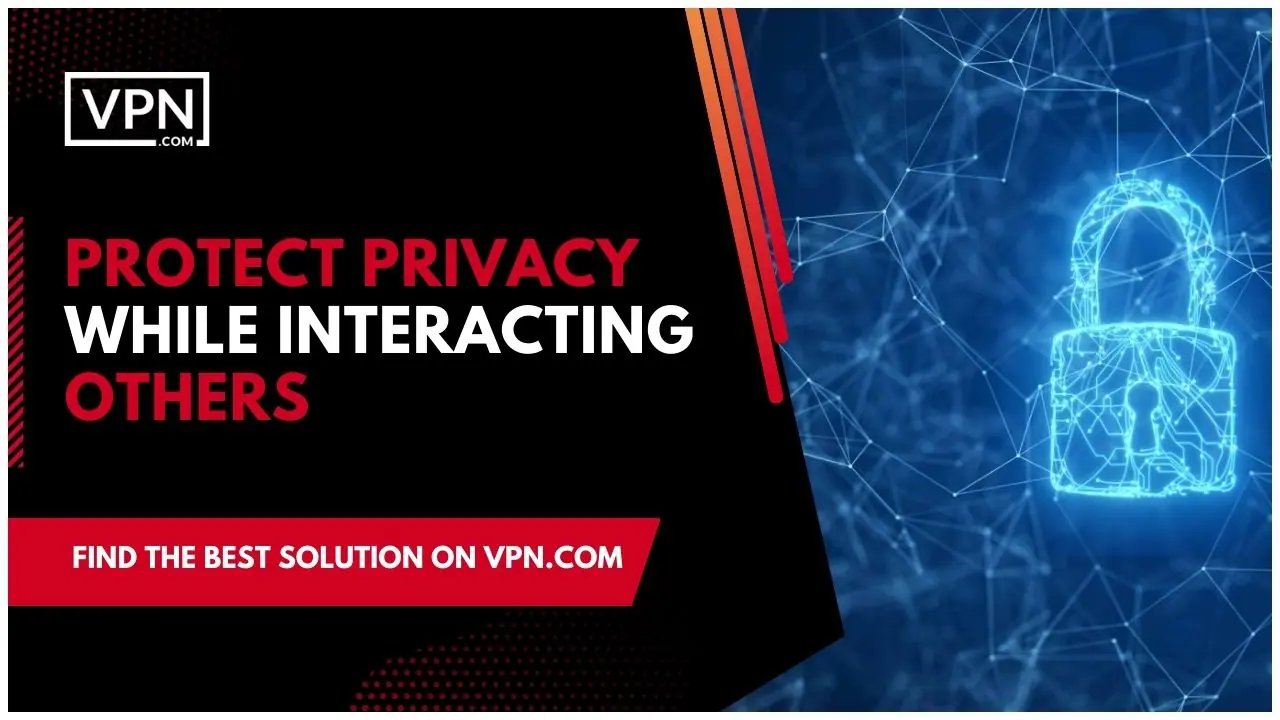
Use a privacy-conscious messaging program to preserve your privacy when communicating. Several of these apps offer different privacy options. Signal, WhatsApp, and Telegram are prominent privacy-focused chat apps.
Use a privacy-friendly browser plugin to secure your communication privacy. These extensions vary in privacy protection. Privacy Badger, uBlock Origin, and HTTPS Everywhere are popular privacy-friendly browser add-ons.
VPNs also preserve your privacy. VPNs encrypt your data and route it through a privacy-friendly server, making it harder to spy. ExpressVPN, NordVPN, and TunnelBear are popular VPNs.
While interacting, use privacy-conscious messaging apps, browser extensions, and VPNs.

Get Started w/ NordVPN Today
- Top-rated VPN for OS unknown
- Ultra-fast speed in US in 2024
- Save 69% off with VPN.com Discount
- Plans starting at $2.99/month
GUARANTEE
Conclusion
Encrypted communication is an important tool for making sure that digital and internet communication is safe and private. Privacy laws in the US try to stop people from misusing personal information shared through non-encrypted communication tools, but they can’t protect information once it has been sent.
Data encryption scrambles our information by mixing up the bytes, which makes it nearly impossible for anyone to get to it without the right decryption key. Popular tools like Signal and ProtonMail offer end-to-end encryption and are easy to use when sending messages or emails.
These encrypted points are easy to find for users who want more personal privacy and a more secure way to exchange data overall. Even though many people may not think about using these technologies in their daily lives, encrypting your communications can add an extra layer of security that could be worth its weight in gold if a breach or leak ever happened.
Customer Reviews for NordVPN: In-Depth Review, Tests, and Stats

Connection issues with MLB.TV
May, 2 2023

Prompt customer service
May, 6 2023

I would highly recommend
December, 15 2023



